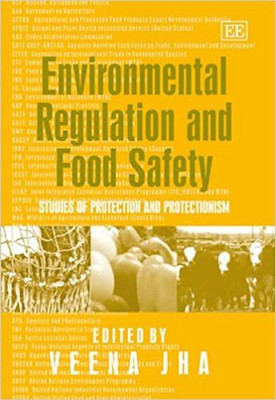Environmental Regulation and Food Safety(English, Hardcover, unknown)
Quick Overview
Product Price Comparison
Environmental, health and sanitary requirements in developed countries are sometimes perceived in developing countries as non-tariff barriers to trade. This book shows that such restrictions are perceived to be more stringent during the domestic production season or when stock levels are high. The authors argue that scientific data for specific thresholds or limit values sometimes appear to be questionable and that they vary widely between countries. In some cases, products that had initially been refused access to a domestic market have subsequently been allowed access but at a lower price. Thus standards are perceived to be a mechanism for bidding down the export price. Countries from the same region with similar water or climatic conditions may be subject to differential degrees of Sanitary and Phytosanitary measures (SPS). Measures to address protectionist aspects of standards must be devised to ensure free and fair trade. The contributors to this book show that there are good reasons for suspecting that these standards could indeed be protectionist. Utilising a wealth of empirical evidence, the book includes case studies written by authors based in the regions and does not fail to address awkward issues such as 'whose standards?', 'why standards?' and whether cartelisation is the consequence of standards. The contributors also address the political economy of standard setting, not simply the technical process, north-south issues and the political economy of organic food markets. Environmental Regulation and Food Safety will appeal to policymakers and NGOs, researchers and scholars of international and development economics as well as industry strategists. Copublished with Canada's International Development Research Centre.


